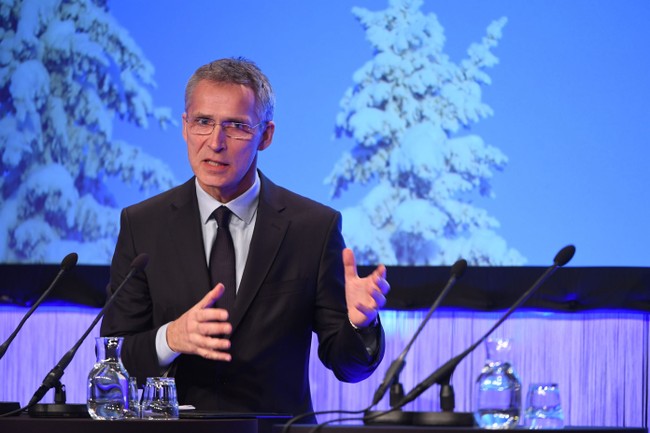Top News
Sweden Clears Final Obstacle to Joining NATO

Finland got the greenlight to join NSTO nearly a year ago but Sweden’s bid has been delayed because of objections by Hungary. Finally, today, Hungary’s Parliament voted to approve Sweden’s entry. Sweden will become the 32nd member of the group.
With Budapest at last onboard, Sweden is set to become NATO’s 32nd member, possibly within the week, completing a process that began with Russia’s 2022 invasion of Ukraine and saw Finland join last year. The addition of the two Nordic countries will bolster the alliance’s capabilities, strengthening its position in the high north and the Baltic Sea — all while sending an important message to Moscow.
“Today is a historic day,” Swedish Prime Minister Ulf Kristersson wrote on X, formerly Twitter. “The parliaments of all NATO member states have now voted in favour of Swedish accession to NATO. Sweden stands ready to shoulder its responsibility for Euro-Atlantic security.”
NATO Secretary General Jens Stoltenberg welcomed Hungary’s vote, saying, “Sweden’s membership will make us all stronger and safer.”
It was clear that things had thawed out between Hungary and Sweden last Friday when Prime Minister Viktor Orban and Prime Minister Ulf Kristersson met in Budapest.
Orban, who said last week that the Hungarian Parliament would vote on ratification on Monday, met with Kristersson on Friday and announced at the press conference that Hungary had bought four fighter jets from Sweden.
The Gripen fighter jets would expand Hungary’s fleet, Orban said, “thereby significantly increasing our military capabilities and further strengthening our ability to play a role abroad.”…
“Being members together in NATO we [will be] able to reconstruct the full trust towards each other,” Orban added later.
There are differing theories about why PM Orban held up Sweden’s bid for so long. One theory is that Orban’s closeness to Putin led him to stretch out the delay. Another theory is that he was using his holdout strategy to extract concessions.
The vote on Monday ended a standoff that had soured Hungary’s relations with the United States and other members of NATO. With the exception of Turkey, all approved Sweden’s membership more than a year ago after the full-scale Russian invasion of Ukraine.
Even with Hungary’s acceptance of Sweden into the alliance, the long, drawn-out process to get to this point is likely to leave a bitter aftertaste. And the belated assent to the expansion of NATO, to which Hungary makes only a modest contribution, will not quickly change Mr. Orban’s reputation as a troublemaker more interested in cozying up to Mr. Putin, with whom he held an amicable meeting in October during a visit to China, than in supporting the alliance…
Mr. Orban’s tough stance on Sweden, as well as his initial blocking of the Ukraine aid package, reflected his penchant for trying to establish his small country — Hungary has only 10 million people and accounts for just 1 percent of economic output in the European Union — as a force to be reckoned with on the European political stage.
A couple days ago, on the 2nd anniversary of the invasion of Ukraine by Russia, NATO’s Jens Stoltenberg said it was inevitable that Ukraine itself would one day join NATO.
President Putin started this war because he wanted to close NATO’s door, and deny Ukraine the right to choose its own path. But he has achieved the exact opposite: Ukraine is now closer to NATO than ever before.
We are helping to make your forces more and more interoperable with Allies. We will open a new Joint Analysis, Training and Education Centre in Poland together. And we are deepening our political ties through the NATO-Ukraine Council, where we consult and make decisions together.
Ukraine will join NATO. It is not a question of if, but of when.
As we prepare you for that day, NATO will continue to stand with Ukraine. For your security, and for ours.
If stopping NATO really was Putin’s goal then he has failed pretty miserably. Even if there is a negotiated settlement with Ukraine in which Putin keeps the parts he recently annexed, he’ll still have a long border with the new Ukraine, a Ukraine much more interested in joining NATO. And since Finland joined NATO as a result of the invasion that means Putin has 800 miles of border with a NATO country that he didn’t have prior to the invasion. Again, if stopping NATO was his goal, he failed.
But I’m not convinced that was Putin’s goal anyway. I think he was trying to juice his sagging poll numbers which shot up after he annexed Crimea in 2014 but dropped during the pandemic just as he was making plans to become president for life.
Read the full article here


















